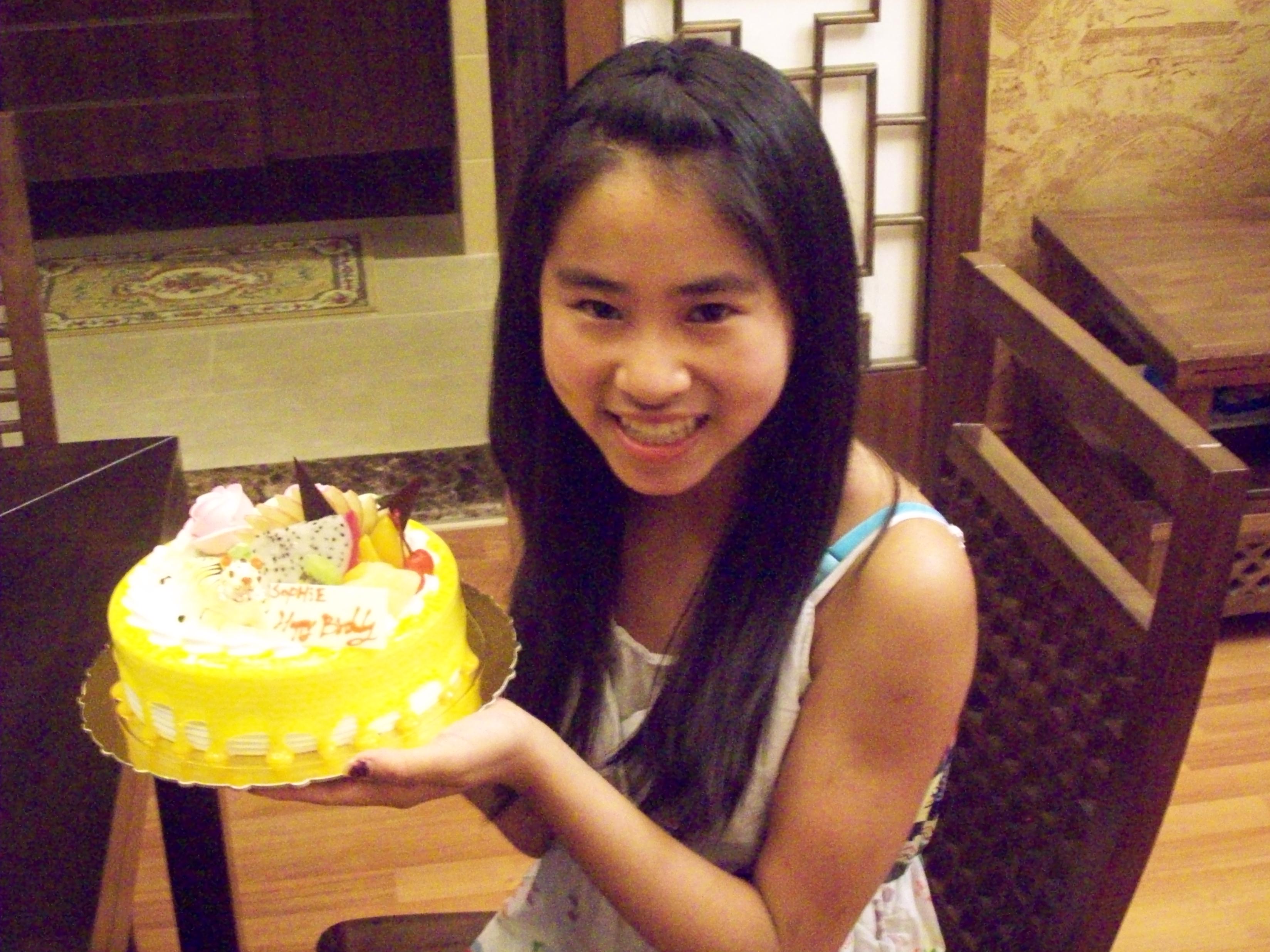
A few weeks ago, for Sophie’s thirteenth birthday, we went to see “Kung Fu Panda 2” in Guilin, in a theater named after Marilyn Monroe, where we had assigned seats and wore very heavy plastic 3-D glasses.
It was weird to watch, in a Chinese theater, an American movie in English with Chinese subtitles, set in China—a movie with themes that resonated for me in obvious ways, I, the only white person and a single mother in a theater with my Chinese daughter, in China to learn more about her heritage, watching a movie about a panda raised by a single-father goose and longing for more information about where he came from.
Children’s stories are full of orphans. Maybe this convention originated when mortality rates were higher and children were more likely to be without parents, but now it’s a popular device because it allows characters to face obstacles without adult intervention. But it’s more than that; the search for our origins is an endlessly compelling theme.
In an animated film for children, some questions are inevitably skimmed over or handled with a light touch, like how a panda raised by a goose learns to be a panda. As a child, he eats all of the bamboo furniture in the goose’s restaurant, but the question of identity becomes a fairly absurd one in a world where geese run restaurants and pandas work in rice fields, practice martial arts, and struggle to develop inner peace.
Watching this movie on my daughter’s thirteenth birthday, I was especially struck by the scene in which the birth mother panda, her life threatened, leaves her baby in a radish crate, trying to save him. All over China there are birth parents who have left behind children, not because, as Americans commonly assume, the Chinese don’t like girls or somehow don’t value life as much as other cultures. All over China, there is the heartbreak of difficult positions created by overpopulation, a strict government policy that once allowed families only one child, the lack of a social security system, the need for boys to help on farms and the expectation that sons take responsibility for aging parents—a complex web of tradition and social, cultural, political, and economic forces that pushed parents to make impossible choices.
Back in June, we’d landed in Shanghai, our seats over an enormous wing so that we couldn’t see much—first clouds, then fog, then suddenly lights and the shiny wet pavement of the airport runway. We were a couple of hours from Sophie’s birthplace, but all we could see, coming in, was the airport. Later, we would miss seeing Hangzhou, the city where I first met Sophie, nor would we have time, the next day, to try to find again the disappearing village where she was born. The haziness of these places would start to feel like a physical manifestation of all we can’t know. But it was impossible to watch a movie like “Kung Fu Panda” on my child’s birthday without believing that there’s a woman somewhere in China who regularly thinks of her on this day, too.
The upshot of Kung Fu Panda’s search for his origins is that he should “let go of the past” and take control of his future. In the end, the panda is reunited with his father, the goose, whose grief and terror of losing his son to his questions about the past is now assuaged. But then comes the set up for “Kung Fu Panda 3”: “My son is alive!” a panda working on a rice paddy declares right before the credits roll.
Late last week, we took a train from Yiwu to Shanghai, where, at ten p.m., we ordered the same noodles we had when we first arrived in China. This time, we ate them more adeptly, with fewer spills. The next morning, we took a shuttle to Pudong Airport and boarded our flight for home.
When I entered a public restroom, after weeks of squat toilets, the sound of toilet lids slamming and toilet paper unreeling from a holder made me giddy. At Wendy’s, I still found myself sidling up to the cash register to read the total to make sure I paid the right amount, and I was shocked by the hugeness of the small cups.

Though for a few days we were a bit confused about basic procedures for daily living, we’re happy to be home again. Still, Sophie also misses China. So, though this is my last blog, it’s not the end of the story any more than “Kung Fu Panda 2” allowed for neat closure when there are more questions to be answered. While I’m cynical about the additional movies and profits that this ending prefigures, I also appreciate the true-to-life message that reflects our own experience. The search for heritage is a continuing process that can’t be put to rest by one resolution or revelation or memory or discovery, much less by one acrobatic show or Chinese New Year celebration or one trip to China, or two, or three.
Thanks again to Micquel Little who took time during her busy summer to edit, title, format, and post this blog for me. Thanks also to Sophie, who read or listened to every draft and gave me feedback about what to add or change. Writing this forced me to keep a more careful record than I might have otherwise and attend more closely to the details, and I especially appreciated the comments, encouragement, and feedback from readers along the way.
Thank you to everyone who accompanied us on this journey.